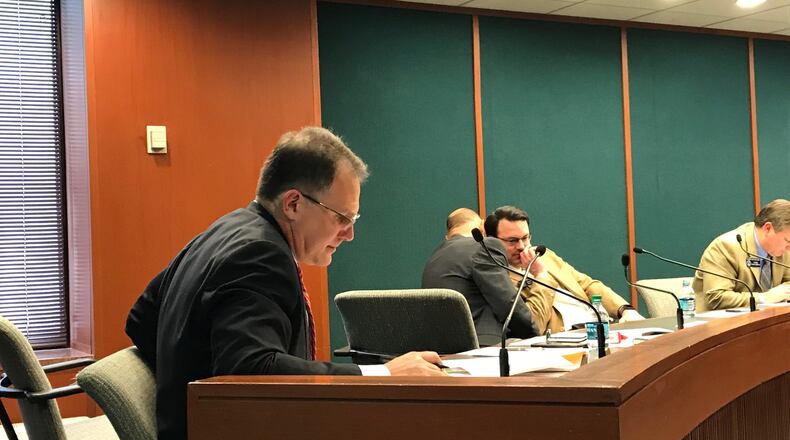Georgia college officials and the presidents of its two largest universities told state lawmakers Tuesday that legislation aimed at protecting the rights of people invited to speak on campuses is unnecessary and could increase security costs and raise liability.
The bill's supporters, though, argued the legislation, Senate Bill 339, is needed because current speech rules do not offer enough spaces on campus for individuals and groups to speak and many conservative students feel their rights are restricted.
The divergent viewpoints came during a state Senate higher education committee meeting to discuss the bill introduced by Sen. William Ligon, R-Brunswick. He and many conservatives have complained about speakers being interrupted or shouted down on campuses across the nation.
Ligon’s bill includes a “two strikes” provision that could expel students who’ve been found responsible twice for interrupting speeches by others.
“The goal is not to punish, but to protect free speech,” Ligon said during the meeting.
Georgia State University president Mark Becker called the bill “unneeded,” saying universities nationwide have improved their campus speech policies in recent years. The University System of Georgia, which includes Georgia State, updated its policy last year to ensure each campus provides high-traffic, accessible areas for speakers. Ligon said the USG policy doesn’t offer enough specifics about penalties.
University of Georgia president Jere Morehead said Ligon’s bill would create “unintended consequences” such as increasing security fees when a controversial speaker comes on campus.
The committee did not take a vote on whether to forward the bill to the entire Senate. Sen. Fran Millar, R-Dunwoody, the committee’s chairman, asked Ligon and the USG to meet to work on an agreement.
MYAJC.COM: REAL JOURNALISM. REAL LOCAL IMPACT.
The AJC's Eric Stirgus keeps you updated on the latest happenings in higher education affecting metro Atlanta and Georgia. You'll find more on myAJC.com, including these stories:
Never miss a minute of what's happening in state and local education. Subscribe to myAJC.com.
About the Author
Keep Reading
The Latest
Featured



